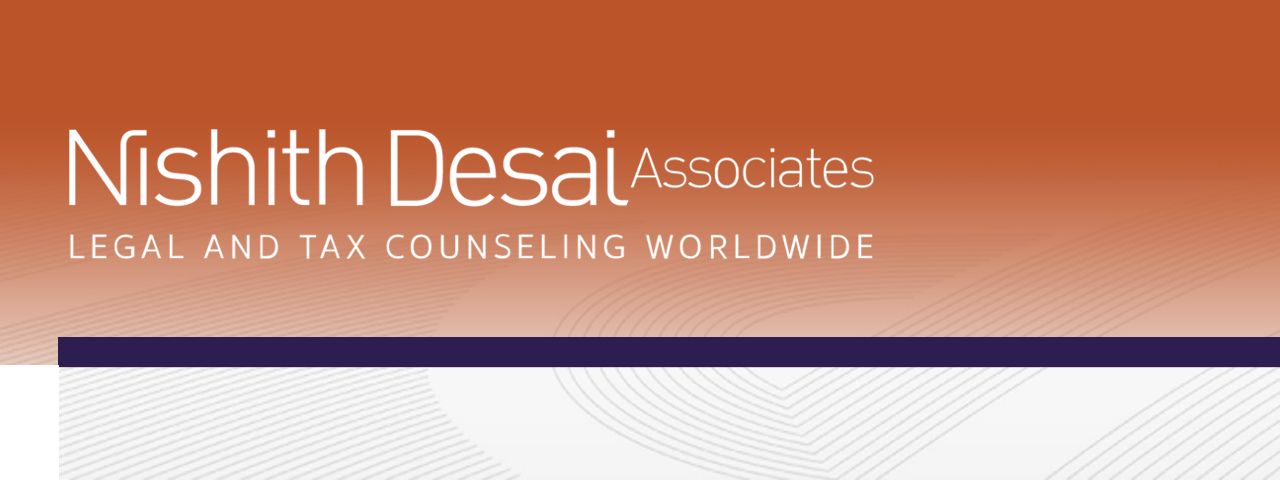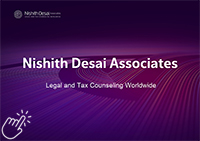|
|
|


Governance landscape in India has seen a transformation in whistleblowing dynamics driven by regulatory mandates and ESG principles.
Despite regulatory frameworks, whistle-blowers encounter threats to their safety and professional reputation, emphasizing the need for robust protection measures.
Key elements such as whistle-blower policy and frameworks, accessible reporting channels, and prompt investigation underscore the importance of cultivating a culture of trust and accountability to ensure effective whistleblowing.
In the multifaceted web of corporate governance, the practice of whistleblowing stands as a beacon of transparency and accountability. In India, the journey of whistleblowing has evolved significantly, driven by regulatory mandates, corporate responsibility requirements, and the broader adoption of Environmental, Social, and Governance (ESG) principles. However, the effectiveness of whistleblowing hinges not only on the existence of policies but also on cultivating a corporate culture that encourages transparency and accountability.
A whistle-blower (individuals or a group) is typically an insider with first-hand knowledge of fraud, corruption, misconduct, malpractices or other unethical actions contrary to the law taking place in a company. These individuals, often current or former employees, vendors, or affiliates, play a crucial role in safeguarding the interests of a company and its stakeholders. The decision to come forward is often contingent upon assurances or even a belief that the information will be handled appropriately, leading to a thorough investigation and subsequent remedial actions.
Ensuring the safety and security of whistle-blowers is essential for cultivating an environment where truth can be spoken without fear of retaliation.
Whistleblowing Dynamics in India:
India has witnessed several high-profile whistleblowing cases in recent years, spanning across sectors including from finance to healthcare. These cases often shed light on corporate malpractices, financial irregularities, and breach of ethics. Whistle-blowers, who play a key role in unveiling such misconduct, have faced various challenges, including threats to their safety and professional reputation and even harassment. In India, the broad definition of a whistle-blower is rooted in the disclosure of public interest matters, particularly those pertaining to illegal activities, criminal behaviour, violations of the law, threats to public health and safety, and environmental harm.
It is often seen that whistle-blowers face hostility and threats from the companies or individuals they expose. Lack of protection can lead to social ostracism, physical abuse, or even death. Strong legislation is essential to ensure the effective protection of whistle-blowers and encourage reporting of wrongdoing. While theoretically the regulatory framework surrounding whistleblowing in India has undergone significant transformation to provide protection and support to those who expose wrongdoing. However, despite legislative efforts, the official recognition and protection of whistle-blowers, especially within private enterprises, remain uncertain.
Regime for whistle-blower protection in India:
The Whistle Blower Protection Act, 2014, was introduced to provide legal protection to whistle-blowers. Yet, its enforcement and effectiveness remain a concern. The Act was intended to establish a legal mechanism for reporting illegal, unethical, and improper practices within organizations. Though, its scope is limited to public servants and public sector undertakings.
In India, the legal framework concerning whistleblowing and the protection of whistle-blowers has predominantly focused on listed companies. The Companies Act, 20131, mandates the establishment of a “vigil mechanism” for directors and employees of listed companies and other prescribed companies2. This mechanism serves as a channel for reporting wrongdoing and aims to prevent victimization. There is an additional requirement of publishing the details of the mechanism on the company’s website and in the report of the board of directors3. Further in case of repeated frivolous complaints being filed by a director or an employee, the audit committee or the director nominated to play the role of audit committee may take suitable action against the director or the employee including reprimand4.
The Securities Exchange Board of India (“SEBI”) has mandated that every listed company should have a whistle-blower policy and make employees aware of such policy to enable employees to report instances of leak of unpublished price sensitive information. 5SEBI has also increased the monetary incentive to ₹10 crores, signalling a commitment to empowering whistle-blowers and combating insider trading.6
Supplementing this framework is the Companies (Auditor’s Report) Order, 20207, which enhances financial transparency by emphasizing cooperation with auditors and addressing whistle-blower complaints.
The significance of whistleblowing policies extends beyond listed companies to include unlisted and private entities. However, in private companies, the whistleblowing framework is primarily driven by internal policies, highlighting the need for standardized practices across all sectors. Some progressive ESG compliant companies (especially subsidiaries of MNCs) have incorporated a whistle-blower policy as part of extending their global policies which includes individual employees or group of employees and in some cases even third parties.
Best practices for whistleblowing encompass several key elements:
Clear Policy Framework: Comprehensive whistle-blower policies serve as the foundation of a robust whistleblowing mechanism. These policies should articulate the process for reporting violations, emphasize confidentiality provisions, and explicitly prohibit retaliation against whistle-blowers. To ensure effectiveness, organizations must communicate these policies effectively to all employees and stakeholders through training sessions, employee handbooks, and internal communications.
Accessible Reporting Channels: Accessible reporting channels are essential to encourage whistle-blowers to come forward without fear of reprisal. Establishing multiple reporting avenues, such as hotlines, digital platforms, or designated individuals, ensures that employees at all levels have options to report concerns confidentially. Ensuring the anonymity of whistle-blowers further encourages a culture of trust and transparency within the organization.
Prompt Investigation and Action: Upon receiving reports of wrongdoing, organizations must initiate prompt and thorough investigations. Senior management or independent professionals should oversee these investigations, ensuring timely action is taken to address substantiated claims. Disciplinary measures should be implemented as necessary, sending a clear message that unethical behavior will not be tolerated.
Board Oversight: The board of directors plays a key role in overseeing the effectiveness of the whistle-blower mechanism. Regular reviews and assessments should be conducted to ensure alignment with regulatory requirements and organizational objectives. Board members should actively engage with the mechanism's operation, providing guidance and support as needed
Training and Awareness: Training and awareness programs are instrumental in educating employees about their rights and responsibilities regarding whistleblowing. These programs should emphasize the importance of ethical conduct, the significance of whistleblowing in upholding organizational integrity, and the protections available to whistle-blowers. Regular refresher courses can reinforce these messages and keep employees informed about any updates to the policy or procedures.
Confidentiality and Anonymity: Maintaining the confidentiality and anonymity of whistle-blowers is paramount to protect them from potential retaliation. Organizations should establish protocols to safeguard the identity of whistle-blowers throughout the reporting and investigation process. This ensures that individuals feel safe and secure when raising concerns about misconduct.
Non-Retaliation Policy: Clear policies prohibiting retaliation against whistle-blowers are essential to create a safe reporting environment. Employees must feel confident that they can raise concerns without fear of reprisal or adverse consequences to their employment. Organizations should enforce these policies rigorously and address any instances of retaliation swiftly and decisively.
Independent Oversight: Incorporating independent oversight into the whistleblowing mechanism adds credibility and impartiality to the process. Designated committees or ombudsmen can oversee investigations, ensuring fairness and objectivity in resolving reported issues. This independent oversight instils confidence in employees that their concerns will be addressed impartially.
Timely Response: Timely response to whistle-blowers’ concerns is crucial to demonstrate organizational accountability and commitment to remediation. Prompt investigation and resolution of reported issues reinforce trust in the whistleblowing process and signal to employees that their concerns are taken seriously. Regular communication with whistle-blowers about the progress of investigations also helps maintain transparency and accountability.
Early Detection of Issues: Whistleblowing mechanisms serve as early warning systems for potential crises by enabling employees to report concerns promptly. Timely identification and investigation of issues can prevent them from escalating into full-blown crises. Integrating whistleblowing into crisis management strategies strengthens organizational resilience and fosters a culture of transparency and accountability. For our article on Crisis Management by the Board, click here.
Impact on Governance and ESG:
From a governance perspective, whistleblowing serves as a catalyst for enhancing transparency and integrity within organizations. It empowers employees to voice concerns regarding unethical behaviour, thereby deterring fraudulent activities and promoting a culture of compliance. Moreover, effective whistleblowing mechanisms contribute to strengthening stakeholder trust and investor confidence, aligning with ESG objectives.
ESG principles emphasize the importance of ethical conduct, risk management, and stakeholder engagement, all of which are intertwined with whistleblowing practices. Companies that prioritize whistleblowing as part of their ESG strategy demonstrate a commitment to accountability, social responsibility, and long-term sustainability.
The rise of ESG investing underscores the growing importance of sustainability and social responsibility in corporate decision-making. Whistleblowing plays a significant role in ESG integration by uncovering practices that may compromise environmental conservation, social equity, or ethical governance. By exposing issues such as pollution, labour exploitation, or even corruption, whistle-blowers compel organizations to re-evaluate their ESG practices and adopt more sustainable approaches.
–
Maulin Salvi and
Sahil Kanuga
You can direct your queries or comments to the author
1Section 177 of the Companies Act, 2013; Rule 7, Companies and (Meetings of Board and its Powers) Rules, 2014
2Companies accepting deposits from the public, companies that have borrowed money from banks and public financial institutions in excess of fifty crore rupees (Section 177(9), Companies Act, 2013).
3Section 177 of the Companies Act, 2013
4Rule 7, Companies and (Meetings of Board and its Powers) Rules, 2014
5Regulation 4(2)(d) & Regulation 22 of the SEBI (Listing Obligations & Disclosures requirements Regulations) 2015
6Regulations 7D & 9A(6) of the SEBI (Prohibition of Insider Trading Regulations) 2015
7Para 70-72 of the ICAI Guidance Note on CARO
Disclaimer
The contents of this hotline should not be construed as legal opinion. View detailed disclaimer.
Research Papers
Service of Foreign Judicial and Extrajudicial Documents
Opportunities in GIFT City
Compendium of Research Papers
|
NDA Hotline |
Video
Cyber Incident Response Management
|
NishithTV |




